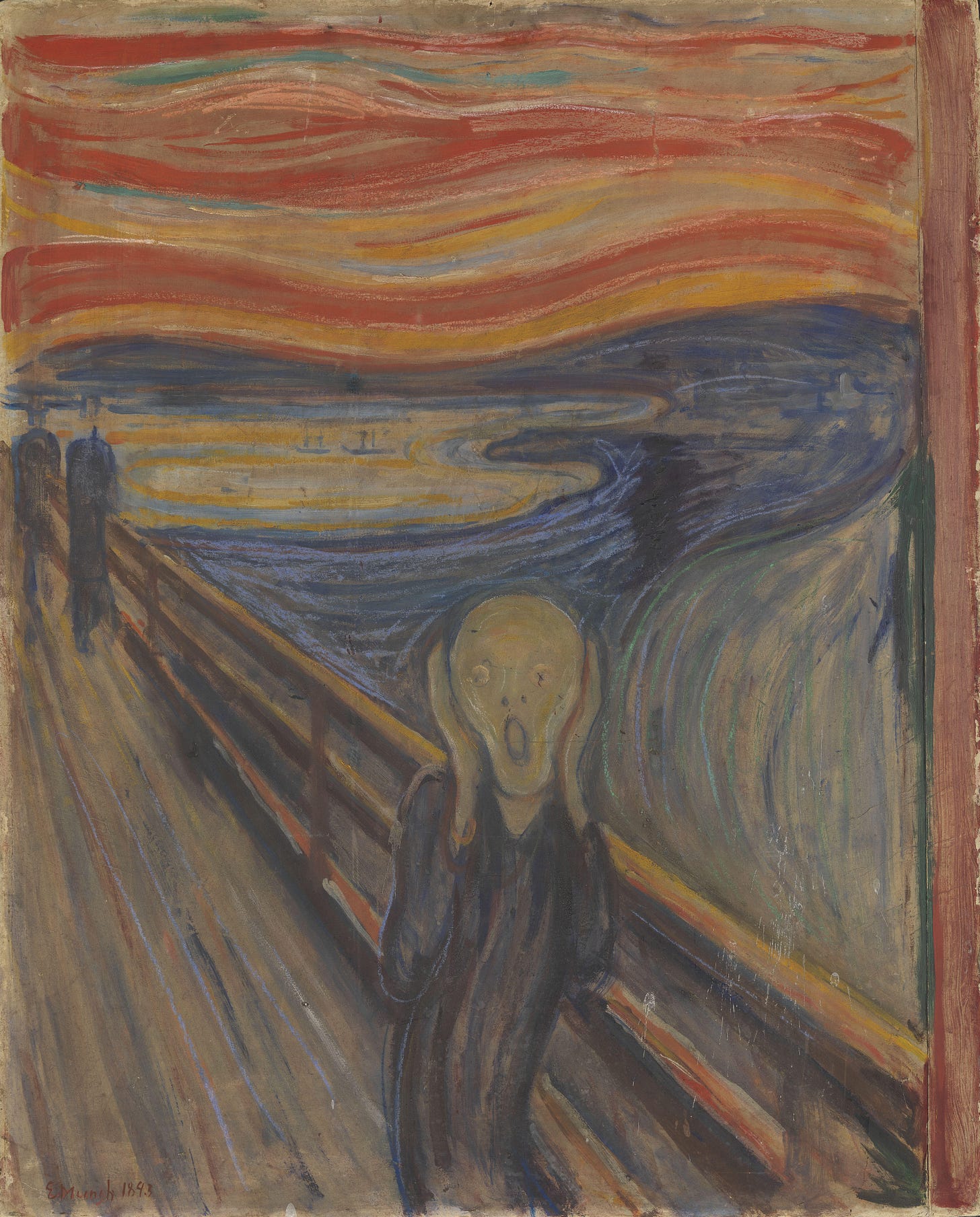To understand Jehovah’s Witnesses, you have to understand the beatings and The Fear. Some outsiders puzzle over their doctrine, trying to use logic to disentangle it, but are missing a vital clue.
I was not beaten, so I can’t write about that directly, though I can tell you what I saw. I was, however infected with The Fear, which I will also tell you about.
You could have the beatings or The Fear, though you could certainly be cursed with both. And I don’t mean the fear of being beaten. No, I mean The Fear. A fear I still hold between my teeth on many mornings during those in-between hours when the earth bathes in first rays of sunlight and the world is still asleep.
I startle awake with a fright so palpable, it freezes my blood.
No amount of Protestant shame about how being fearful is a sin has been able to shake it loose from me.
It is my security blanket, and I worry I will die with it still clutched tightly in my hands.
Terror like nothing I have ever known governs my heart in hidden recesses that become known when I am truly alone. We venture to unknown territory when we are sick or when we are hit with the question of facing who we have been as a person.
Trusting Jesus is especially difficult when He had been placed in the position of the older brother as outlined in this article, and for me, this has lingered despite salvation. Like a cough that persists after the bronchitis has faded, beliefs dwell deep inside the psyche, and I remain forever like a kid touching the bottom of the pool to make sure it is still there.
So, we’ll start with the beatings.
When I four or so, I became cognizant of being in a special religion where we knew all the secrets. All the trap doors were ours to navigate. We could maybe survive Armageddon, maaaaybe, because we had all the intel, but the average person was in a worse position.
Probably.
And in the Jehovah’s Witness universe, there is no separation between the children and the adults in the Kingdom Hall. We don’t have churches, and we don’t have sermons. Sunday mornings feature what is known as the public talk and then an hour-long trek through a Watchtower magazine article.
It was important that you read the article ahead of time and researched the supporting verses. Each paragraph would have a question, and you were to underline the answer. You didn’t want to be a loser with a blank Watchtower on Sunday or, worse still, no Watchtower.
A microphone would be passed around, and if you raised your hand, they would let you answer the question when it was called upon from the stage. A chosen volunteer would read the article, one paragraph at a time.
Riveting stuff.
Well, kids got bored. This rhetoric could make you want to watch wallpaper dry. The problem is, it wasn’t allowed to drift off or play with toys. You couldn’t doodle or otherwise pass the time. You had to sit, back erect, sitting with your eyes facing forward.
You couldn’t make eyes at your friends, if you were lucky enough to have them, and you had to appear to be paying attention. You got extra points if you were one of the ones who were selected to “make a comment” as it was called when you spoke into the microphone with your cut-and-paste Jehovah’s Witness answer to the question.
Very often, this was just reading the underlined sentence in the paragraph with nothing additional added.
Then you could smile, and you might be patted on the back.
However.
Kids who broke the rules or kids who fidgeted were “taken to the bathroom”. You would see a mom with an angry yet stoic face grab her kid and take him or her to the bathroom. None of us made eye contact. A father might pop up and carry a boy or girl to the bathroom.
My heart would sink, but I knew from the collective response that we were to pay no obvious attention to it. All eyes were to remain glued to the front as if nothing was happening.
Then you would hear it.
Likely the removal of a belt and the screaming. You could easily tell someone was getting their ass beat.




